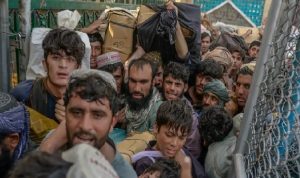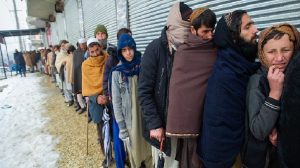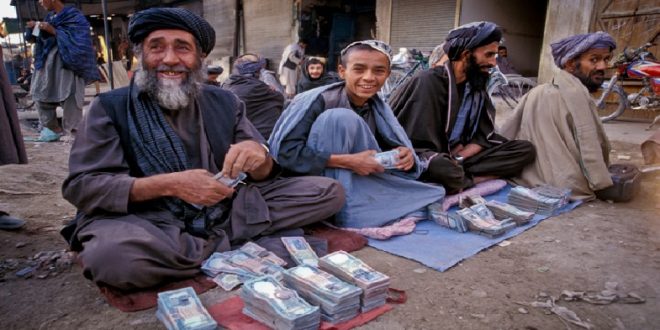19-04-2023
Bureau Report + Agencies
UNITED NATIONS/ KABUL: Weak signs of recovery in Afghanistan’s economy are at risk of being undone by Taliban restrictions on women working for NGOs, the UN says.
Donations to the UN are under threat of falling sharply because of the ban on Afghan women working for it, the United Nations Development Program said.
The number of families living in poverty had nearly doubled in two years, its report found.
 The Taliban said politics should not be linked with humanitarian aid decisions.
The Taliban said politics should not be linked with humanitarian aid decisions.
Afghanistan was pushed into economic collapse when the Taliban took over in 2021, and foreign funds that were being given to the previous regime were frozen.
Already, 34 million people – 90% of the population – are living below the poverty line. Two in three Afghans don’t know when they will get their next meal.
The UNDP report noted signs of hope brought about by inflows of foreign aid through different UN agencies – coupled with improved security conditions, a reported reduction in corruption and better tax collection by the Taliban government but it stressed: “The economy cannot be reignited if women cannot work, while future economic growth is constrained by under-investment in girls’ and women’s education.”
Last year, the Taliban banned Afghan women from working for non-governmental organisations. Girls were also barred from secondary school and women from university.
When the Taliban retook control of Afghanistan in August 2021, billions of dollars in Afghan assets held abroad were  frozen as the international community waited for the Taliban to honor promises on security, governance and human rights – including allowing all girls to be educated.
frozen as the international community waited for the Taliban to honor promises on security, governance and human rights – including allowing all girls to be educated.
The United Nations and other non-governmental organizations have since played a crucial role in saving Afghans from going hungry but the UN said 94% of 127 national organizations it had surveyed had fully or partially ceased operations after the ban on women employees was imposed in December.
About 150 NGOs and aid agencies have suspended all or part of their work.
A senior Taliban finance ministry official told media in Kabul that the rules imposed on women were “internal matters” for the country and that their government was working to improve the economic situation.
“All the humanitarian aid and donations on the ground, those should not be related to these issues only,” said Mairaj Mohammad Mairaj, the ministry’s director for general revenue.
“It is our duty as men, in the Islamic view, to take care of our women sitting in their homes.”
Mairaj said there had been “a lot of corruption and misuse of power” in the previous government.
 Pressmediaofindia
Pressmediaofindia




